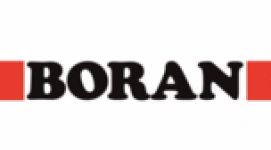
VOCATIONAL SCHOOL
Department of Real Estate Management (Turkish)
MPAZ 101 | Course Introduction and Application Information
| Course Name |
Principles of Marketing
|
|
Code
|
Semester
|
Theory
(hour/week) |
Application/Lab
(hour/week) |
Local Credits
|
ECTS
|
|
MPAZ 101
|
Fall/Spring
|
3
|
0
|
3
|
4
|
| Prerequisites |
None
|
|||||
| Course Language |
Turkish
|
|||||
| Course Type |
Elective
|
|||||
| Course Level |
Short Cycle
|
|||||
| Mode of Delivery | - | |||||
| Teaching Methods and Techniques of the Course | - | |||||
| Course Coordinator | - | |||||
| Course Lecturer(s) | ||||||
| Assistant(s) | - | |||||
| Course Objectives | Basics, methods and strategies of marketing will be taught in order to give industy-specific insights. |
| Learning Outcomes |
The students who succeeded in this course;
|
| Course Description | This course consists of the definition of marketing, basic concepts on marketing, new trends in marketing, marketing environment, market segmentation and marketing mix strategies, sales management and personal sales. |
|
|
Core Courses | |
| Major Area Courses | ||
| Supportive Courses | ||
| Media and Management Skills Courses | ||
| Transferable Skill Courses |
WEEKLY SUBJECTS AND RELATED PREPARATION STUDIES
| Week | Subjects | Related Preparation |
| 1 | Introduction to the course | |
| 2 | History of marketing in theory and practice | Ellis, N., Fitchett, J., Higgins, M., Jack, G., Lim, M., Saren, M., et al. (2010). Marketing: A Critical Textbook. London: SAGE. Shaw, E. H. (2009). Reflections on the history of marketing thought. Journal of Historical Research in Marketing, 1(2), 330–345. |
| 3 | Consumption as everyday act | Featherstone, M. (2007). Consumer Culture and Postmodernism. London: SAGE. Paterson, M. (2009). Consumption and Everyday Life. London: SAGE. |
| 4 | Consumer behavior | Kotler, P., and Armstrong, G. (2018). Consumer markets and buyer behavior. In Principles of Marketing (156–185). New Jersey: Pearson Education. |
| 5 | Foundations of marketing and marketing environment | Kotler, P., and Armstrong, G. (2018). Marketing: Creating customer value and engagement. In Principles of Marketing (26–54). New Jersey: Pearson Education. Kotler, P., and Armstrong, G. (2018). Company and marketing strategy: Partnering to build customer engagement, value and relationship. In Principles of Marketing (74–83). New Jersey: Pearson Education. Kotler, P., and Armstrong, G. (2018). Analyzing the marketing environment. In Principles of Marketing (90–116). New Jersey: Pearson Education. |
| 6 | Segmentation, targeting and positioning strategies | Lamb, C. W., Hair, J. F., and McDaniel, C. (2017). Segmentation and targeting markets. In MKTG11: Principles of Marketing (136–151). 4LTR Press Online. |
| 7 | Midterm exam | |
| 8 | Marketing mix: Product | Kotler, P., and Armstrong, G. (2018). Products, services, and brands: Building customer value. In Principles of Marketing (242–277). New Jersey: Pearson Education. Kotler, P., and Armstrong, G. (2018). Developing new products and managing the product life cycle. In Principles of Marketing (278–305). New Jersey: Pearson Education. |
| 9 | Marketing mix: Price | Kotler, P., and Armstrong, G. (2018). Pricing: Understanding and capturing customer value. In Principles of Marketing (306–329). New Jersey: Pearson Education. Kotler, P., and Armstrong, G. (2018). Pricing strategies: Additional considerations. In Principles of Marketing (330–355). New Jersey: Pearson Education. |
| 10 | Marketing mix: Place | Kotler, P., and Armstrong, G. (2018). Marketing channels: Delivering customer value. In Principles of Marketing (356–389). New Jersey: Pearson Education. |
| 11 | Marketing mix: Promotion | Kotler, P., and Armstrong, G. (2018). Engaging consumers and communicating customer value: Integrated marketing communication strategy. In Principles of Marketing (422–449). New Jersey: Pearson Education. |
| 12 | Marketing and market research | Kotler, P., and Armstrong, G. (2018). Managing marketing information to gain customer insights. In Principles of Marketing (122–155). New Jersey: Pearson Education. |
| 13 | Neuromarketing | Erdemir, K. O. ve Yavuz, Ö. (2016). "Nöro Pazarlama"ya Giriş. İstanbul: Bilnet. |
| 14 | Brand management | Eser, Z., Korkmaz, S., & Öztürk, S. A. (2009). Pazarlama: Kavramlar, İlkeler, Kararlar. Ankara: Siyasal Kitabevi. |
| 15 | Review of the semester | |
| 16 | Final Exam |
| Course Notes/Textbooks | Eser, Z., Korkmaz, S., & Öztürk, S. A. (2009). Pazarlama: Kavramlar, İlkeler, Kararlar. Ankara: Siyasal Kitabevi. |
| Suggested Readings/Materials | Ellis, N., Fitchett, J., Higgins, M., Jack, G., Lim, M., Saren, M., et al. (2010). Marketing: A Critical Textbook. London: SAGE. Erdemir, K. O. ve Yavuz, Ö. (2016). "Nöro Pazarlama"ya Giriş. İstanbul: Bilnet.
Featherstone, M. (2007). Consumer Culture and Postmodernism. London: SAGE.
Kotler, P. (2015). A’dan Z’ye Pazarlama. İstanbul: MediaCat Yayınları. Kotler, P., & Armstrong, G. (2005). Principles of Marketing. New Jersey: Prentice Hall. Lamb, C. W., Hair, J. F., and McDaniel, C. (2017). MKTG11: Principles of Marketing. 4LTR Press Online. Paterson, M. (2009). Consumption and Everyday Life. London: SAGE. Shaw, E. H. (2009). Reflections on the history of marketing thought. Journal of Historical Research in Marketing, 1(2), 330–345.
|
EVALUATION SYSTEM
| Semester Activities | Number | Weigthing |
| Participation |
1
|
15
|
| Laboratory / Application | ||
| Field Work | ||
| Quizzes / Studio Critiques | ||
| Portfolio | ||
| Homework / Assignments | ||
| Presentation / Jury |
1
|
30
|
| Project |
1
|
15
|
| Seminar / Workshop | ||
| Oral Exams | ||
| Midterm | ||
| Final Exam |
1
|
40
|
| Total |
| Weighting of Semester Activities on the Final Grade |
3
|
60
|
| Weighting of End-of-Semester Activities on the Final Grade |
1
|
40
|
| Total |
ECTS / WORKLOAD TABLE
| Semester Activities | Number | Duration (Hours) | Workload |
|---|---|---|---|
| Theoretical Course Hours (Including exam week: 16 x total hours) |
16
|
3
|
48
|
| Laboratory / Application Hours (Including exam week: '.16.' x total hours) |
16
|
0
|
|
| Study Hours Out of Class |
16
|
2
|
32
|
| Field Work |
0
|
||
| Quizzes / Studio Critiques |
0
|
||
| Portfolio |
0
|
||
| Homework / Assignments |
0
|
||
| Presentation / Jury |
1
|
15
|
15
|
| Project |
1
|
12
|
12
|
| Seminar / Workshop |
0
|
||
| Oral Exam |
0
|
||
| Midterms |
0
|
||
| Final Exam |
1
|
18
|
18
|
| Total |
125
|
COURSE LEARNING OUTCOMES AND PROGRAM QUALIFICATIONS RELATIONSHIP
|
#
|
Program Competencies/Outcomes |
* Contribution Level
|
||||
|
1
|
2
|
3
|
4
|
5
|
||
| 1 | To have the knowledge and skills on real estate and its management. |
|||||
| 2 | To follow recent developments about real estate and real estate management. |
|||||
| 3 | To be able take part in team work and have the characteristics of a leader. |
|||||
| 4 | To have professional and ethical responsibility. |
|||||
| 5 | To have the expertise in technological developments in real estate and real estate management field and try to improve it constantly. |
|||||
| 6 | To be aware of the importance for lifelong learning; follow scientific and technological developments. |
|||||
| 7 | To have effective verbal and written communication skills. |
|||||
| 8 | To know and apply the professional ethical codes of real estate and real estate management and auditing in business life and act according to social, scientific and ethical values under any circumstances such as data collection, evaluation, announcing and practicing. |
|||||
| 9 | To have the ability to work effectively in multi-disciplinary areas and apply them in the work environment. |
|||||
| 10 | To be aware of the sales organizations, sales management and sales techniquesand manage the sales process and solve the possible problems that may arise. |
|||||
*1 Lowest, 2 Low, 3 Average, 4 High, 5 Highest


